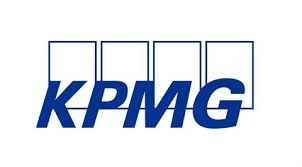
Since the Foreigners’ Residence Act only contains a basic course regulation, the Ministry of Internal Affairs has drafted the Decree on Foreigner Adaptation/Integration Courses, specifying the requirements in more detail. The decree stipulates course organisation requirements; attendance fees; course content and time scope; course attendance conditions; essentials of attendance certification documents; professional qualification requirements for lecturers and interpreters; the content, extent and essentials of the lecturer and interpreter examinations, the manner of taking exams, and their result assessments.
The courses will be organised by the 18 Foreigner Integration Centres currently operating in the Czech Republic. There will be public courses open to the general public, and non-public ones partly organised and paid for by third parties, such as employers of foreigners, who will determine who may attend the course. The decree also stipulates the minimum and maximum number of attendants for public courses (10 to 30), and the maximum number for non-public ones (30). Deviations from these limits will only be possible with the consent of the Ministry of Internal Affairs.
The courses shall take place in the Czech language, under the supervision of a lecturer and an interpreter. They may be interpreted to some of the nine languages listed in the decree, or, upon the ministry’s consent, to another language. The courses are to be led and interpreted solely by lecturers and interpreters who have passed the decree-prescribed exam, thus meeting the professional qualification requirements.
The attendance fee has been set at CZK 1,500 for public courses (to be paid by the foreigners themselves) and CZK 800 for non-public courses (to be paid by the entity taking part in organising the course, in aggregate for all attending foreigners). The payment shall be credited to an account determined by the ministry.
Prior to attending the course, the foreigners must present a residence permit or, if they do not have one and cannot obtain it, a passport. Attendants of public courses must prove that they have paid the attendance fee.
Courses will be scheduled for four hours in a single day and comprise a lecture by a lecturer, and a ‘Welcome to the Czech Republic’ video approved by the ministry. The content of the course will inform foreigners of their rights and duties in connection with their stay in the Czech Republic, and acquaint them with the key values, local conditions, and cultural habits in the Czech Republic. Foreigners will thus receive a wide range of information, both practical and concerning business, employment, education and housing, domestic violence and equal treatment issues, as well as input on major social, cultural and religious events in the Czech Republic.
Foreigners not attending the course will commit an offence for which they may be fined up to CZK 10,000. However, failure to attend the course should not have a negative impact on residence permits.
According to the draft decree, courses supervised by qualified professionals should help foreigners adapt to the living conditions in the Czech Republic and better understand the new culture, while also aiming to prevent some security risks, including terrorism. Employers taking part in organising the non-public courses may include the adaption/integration courses in their initial training for new employees, while providing them with a benefit of not having to pay the course fee. The draft decree is now going through a commenting procedure. We will thus have to wait to see what its final wording will be.
Romana Szuťányirszutanyi@kpmg.cz+420 703 873 693
Petr Štětinapstetina@kpmg.cz+420 222 123 728
Michal Mikovčíkmmikovcik@kpmg.cz+420 222 123 387